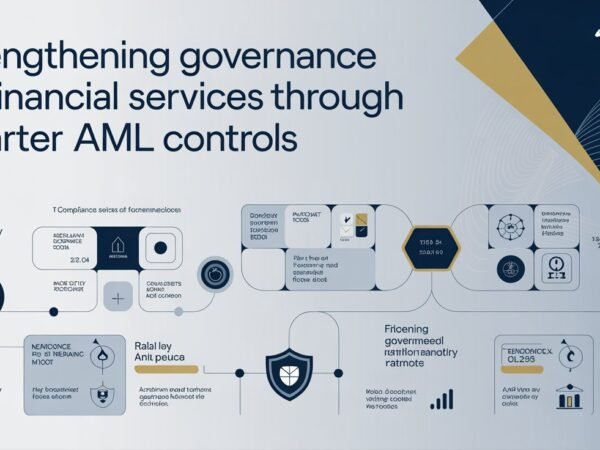In the rapidly evolving world of e-commerce, businesses are constantly seeking platforms that offer flexibility, scalability, and a robust feature set. Magento, an open-source e-commerce platform, has emerged as a leader, providing businesses with the tools to create highly customized and scalable online stores. Exploring Magento development services can offer additional technical insights and support for those interested in further enhancing their implementation. This article delves into the intricacies of leveraging Magento’s open-source flexibility to build custom e-commerce solutions that can meet the unique needs of any business.
Magento, developed by Varien Inc. and first released in 2008, is an open-source e-commerce platform written in PHP. It offers a flexible and scalable framework for online retailers, providing various features to manage their online stores. Magento is known for its extensive customization options, making it a popular choice for businesses that require a tailored e-commerce solution.
Key Features of Magento
- Open-Source Nature: Magento’s open-source framework allows developers to modify and extend the platform’s core functionalities to suit specific business requirements.
- Scalability: Magento can handle a large volume of products and traffic, making it suitable for small and large businesses.
- Customizability: Magento’s vast library of themes and extensions enables businesses to create unique and engaging shopping experiences.
- SEO-Friendly: Magento includes built-in SEO features, helping businesses improve search engine rankings and drive organic traffic.
- Responsive Design: Magento’s themes are designed to be mobile-friendly, ensuring a seamless shopping experience across all devices.
- Multi-Store Management: Magento allows businesses to manage multiple online stores from a single admin panel, making it easier to manage different brands or product lines.
The Benefits of Using Magento for Custom E-Commerce Solutions
Flexibility and Customization
One of Magento’s most significant advantages is its flexibility. The platform’s open-source nature allows developers to customize every aspect of an online store, from the user interface to the backend functionality. This level of customization is essential for businesses that have unique requirements or want to differentiate themselves from competitors.
Custom Themes and Layouts
Magento offers a wide range of themes and layout options that can be customized to create a unique look and feel for your online store. Businesses can choose from pre-designed themes or create custom themes to match their brand identity. The platform’s layout editor allows easy storefront customization, enabling companies to create a visually appealing and user-friendly shopping experience.
Custom Modules and Extensions
Magento’s modular architecture allows developers to create custom modules and extensions to add new features or enhance existing ones. Thousands of third-party extensions are available in the Magento Marketplace, covering various functionalities such as payment gateways, shipping methods, marketing tools, and more. Developers can create custom extensions to achieve the desired functionality if a specific extension does not meet the business’s needs.
Scalability and Performance
Magento is designed to handle large volumes of traffic and products, making it an ideal choice for growing businesses. The platform’s robust architecture ensures that the online store can scale seamlessly as the company expands.
Optimized Performance
Magento includes several performance optimization features, including full-page caching, indexing, and advanced search capabilities. These features help reduce page load times and improve the overall performance of the online store. Additionally, Magento’s architecture allows for easy integration with content delivery networks (CDNs) and other performance-enhancing technologies.
Cloud Hosting Solutions
Magento offers cloud hosting solutions through Magento Commerce (formerly known as Magento Enterprise Cloud Edition). This fully managed cloud service provides businesses with a scalable and secure hosting environment, ensuring high availability and performance. Magento Commerce includes additional features such as automatic scaling, global content delivery, and comprehensive security measures.
SEO and Marketing Capabilities
Magento’s built-in SEO features help businesses improve search engine rankings and drive organic traffic to their online stores. The platform includes tools for optimizing meta tags, URLs, sitemaps, and more. Additionally, Magento’s integration with Google Analytics provides valuable insights into website traffic and customer behavior.
Advanced Marketing Tools
Magento offers a range of marketing tools to help businesses attract and retain customers. These tools include:
- Promotions and Discounts: Magento allows businesses to create and manage various promotions and discounts, such as percentage discounts, free shipping offers, and buy-one-get-one-free deals.
- Email Marketing: Magento integrates with popular email marketing platforms, enabling businesses to create targeted email campaigns and newsletters.
- Customer Segmentation: Magento’s customer segmentation feature allows businesses to target specific customer groups with personalized promotions and offers.
- Product Recommendations: Magento’s recommendation engine suggests related products to customers, increasing the chances of cross-selling and upselling.
Multichannel and Multilingual Support
Magento’s multi-store functionality allows businesses to manage multiple online stores from a single admin panel. This feature is handy for companies that operate in different regions or offer other product lines. Each store can have its own unique design, product catalog, and pricing structure.
Multilingual Capabilities
Magento supports multiple languages, enabling businesses to create localized versions of their online stores. This feature is essential for companies that operate in international markets and need to provide a seamless shopping experience for customers in different regions. Magento’s translation tools simplify translating product descriptions, category names, and other content into various languages.
Security and Compliance
Security is a critical concern for any e-commerce business. Magento provides a range of security features to protect online stores from potential threats. These features include:
- Secure Payment Gateways: Magento integrates with various secure gateways, ensuring that customer payment information is protected.
- Data Encryption: Magento uses SSL encryption to protect data transmitted between the online store and customers.
- Regular Security Updates: Magento’s development team releases security patches and updates to address potential vulnerabilities.
- Compliance: Magento is designed to comply with various industry standards and regulations, such as PCI DSS (Payment Card Industry Data Security Standard).
Leveraging Magento for Custom E-Commerce Solutions
Understanding Business Requirements
Before developing a custom e-commerce solution, it is essential to understand the business’s specific requirements and goals. This involves conducting a thorough analysis of the target audience, market trends, and competitors. By identifying the business’s unique needs, developers can create a tailored solution that meets these requirements.
Planning and Strategy
Once the business requirements are identified, the next step is to create a detailed plan and strategy for developing the custom e-commerce solution. This includes defining the project scope, timeline, and budget. It is also important to outline the key features and functionalities included in the online store.
Design and User Experience
An online store’s design and user experience (UX) play a crucial role in attracting and retaining customers. Magento’s flexibility allows businesses to create a visually appealing, user-friendly storefront that aligns with their brand identity.
User Interface Design
The user interface (UI) design should be intuitive and easy to navigate, ensuring customers can quickly find the products they seek. This involves creating a logical layout, using clear and concise labels, and incorporating visually appealing elements.
Responsive Design
With the increasing use of mobile devices for online shopping, a responsive design that provides a seamless experience across all devices is essential. Magento’s themes are designed to be mobile-friendly, ensuring that the online store looks and functions well on smartphones and tablets.
Development and Customization
The development phase involves building the custom e-commerce solution based on the defined requirements and design. This includes setting up the Magento platform, installing and configuring necessary extensions, and developing custom modules and themes.
Setting Up Magento
The first step in the development process is to set up the Magento platform. This involves selecting a suitable hosting environment, installing the Magento software, and configuring the basic settings. Setting up a development environment to test and deploy changes before they are implemented on the live site is also essential.
Custom Module Development
Custom modules are essential for adding unique functionalities to the online store. These could include custom payment gateways, shipping methods, product filters, and more. Magento’s modular architecture makes it easy to develop and integrate custom modules without affecting the platform’s core functionality.
Theme Development
Creating a custom theme involves designing the visual elements of the online store, such as the layout, color scheme, typography, and images. This includes customizing the default Magento theme or creating a new theme from scratch. The theme should be optimized for performance and ensure a consistent user experience across all online store pages.
Testing and Quality Assurance
Thorough testing and quality assurance (QA) are essential before launching the custom e-commerce solution to ensure all features and functionalities work as intended. This includes testing the website’s performance, security, and compatibility across different devices and browsers.
Functional Testing
Functional testing involves verifying that all features and functionalities of the online store work as expected. This includes testing the shopping cart, checkout process, payment gateways, and other key features. It is also important to test different scenarios and edge cases to identify and fix potential issues.
Performance Testing
Performance testing ensures the online store can handle high traffic and transactions without compromising the user experience. This involves testing the website’s load, response, and scalability. Apache JMeter and LoadRunner can simulate traffic conditions and measure the website’s performance.
Security Testing
Security testing involves identifying and addressing potential vulnerabilities in the online store. This includes testing for common security threats such as SQL injection, cross-site scripting (XSS), and cross-site request forgery (CSRF). Regular security audits and penetration testing can help ensure that the online store is secure and compliant with industry standards.
Launch and Deployment
Once the custom e-commerce solution has been thoroughly tested and any issues resolved, it is ready for launch. The deployment process involves migrating the website from the development environment to the live server, configuring the domain and SSL certificate, and setting up any necessary integrations.
Post-Launch Activities
After the online store is launched, monitoring its performance and addressing any issues is essential. This includes monitoring website traffic, analyzing customer behavior, and collecting customer feedback. Regular maintenance and updates are also necessary to ensure that the online store continues to perform well and remains secure.
Ongoing Optimization and Improvement
The e-commerce landscape constantly evolves, and optimizing and improving the online store to stay competitive is essential. This involves analyzing website analytics, identifying areas for improvement, and implementing changes to enhance the user experience and drive sales.
A/B Testing
A/B testing involves comparing two versions of a webpage or feature to determine which one performs better. This can be used to test design elements, content, and functionalities to identify the most effective solutions. Tools such as Google Optimize and Optimizely can be used to conduct A/B tests and analyze the results.
Customer Feedback
Collecting customer feedback is essential for identifying areas for improvement and understanding their needs and preferences. This can be done through surveys, reviews, and customer feedback. By listening to customer feedback, businesses can make informed decisions and implement changes that enhance the shopping experience.
Regular Updates
Regular updates are essential to keep the online store secure and up-to-date with the latest features and functionalities. This includes updating the Magento platform, extensions, and custom modules. Regular updates also help ensure the online store is compatible with new devices and browsers.
Conclusion
Magento’s open-source flexibility makes it an ideal platform for creating custom e-commerce solutions that meet the unique needs of any business. By leveraging Magento’s extensive customization options, companies can create a tailored online store that provides customers with a seamless and engaging shopping experience. The platform’s scalability, performance optimization features, and robust security measures ensure that the online store can grow and adapt to changing market conditions.
In today’s competitive e-commerce landscape, having a flexible and customizable platform like Magento is essential for success. Whether you are a small business looking to establish an online presence or a large enterprise seeking to expand your e-commerce operations, Magento provides the tools and capabilities to create a powerful and effective online store. By following best practices and continuously optimizing and improving the online store, businesses can achieve long-term success and stay ahead of the competition.
Do Read: How to Choose the Best eLearning Development Company: A Complete Guide













